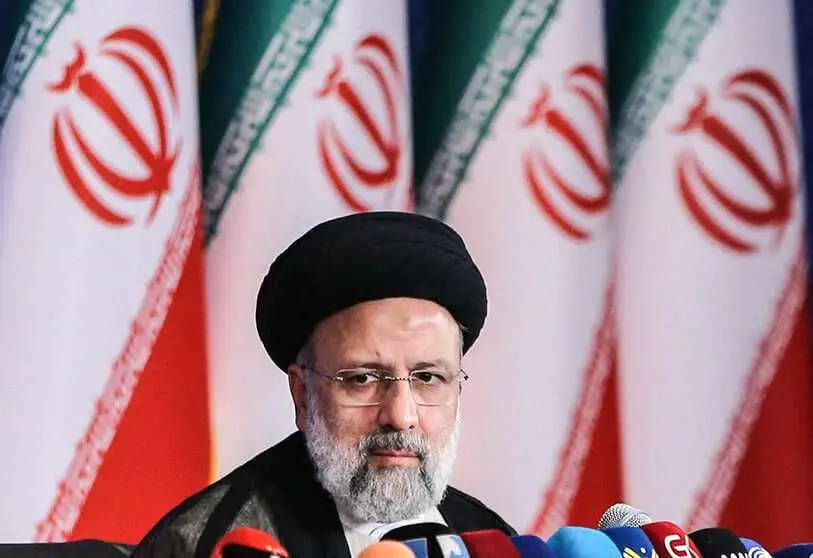The reactivation of the nuclear deal is in Iran's hands

Since the former Republican president, Donald Trump, abandoned the nuclear agreement in May 2018, diplomatic efforts have multiplied in order to achieve a reconciliation that would lead to the fulfilment of the main objective of the Joint Comprehensive Plan of Action: to curb the nuclear ambitions of the Shiite country, considered a threat not only to the region, but also to international security.
Despite the fact that the road to achieving this rapprochement has been characterised as difficult, with talks on the agreement coming to a complete standstill, the European Union presented what it has called "the final text" that would include all the conditions and clauses that the signatory countries must include, including, among them, the United States and Iran.

In response to the European proposal, US officials have indicated that "the United States is ready to conclude the agreement quickly" and that the EU text "is the only possible basis" for doing so. In this context, all other member states - Germany, France, the UK, Russia and China - have come out in favour of the EU plan, with the exception of one: Iran. Although the EU text has brought about a rapprochement between the parties, for the moment this does not mean that Tehran is willing to sign up to it.
In fact, many have been sceptical about Iran's signature. Even the United States is not convinced that Tehran will give the green light to the Plan. Although the document has not yet been made public, the simple fact that, during US President Joe Biden's recent diplomatic tour of the Middle East, he reiterated in Israel that the Iranian Revolutionary Guards would continue to be a terrorist group for Washington is even further removed from Tehran's conditions for reaching an understanding.
For Iran, the fact that the US considers the Revolutionary Guards to be a terrorist group crosses a red line that the Shiite country is not willing to overlook. Among other issues, it is also extremely important for Iran that the International Energy Agency (IEA) cease investigations into the discovery of enriched uranium in three unrecognised Israeli territories.

For Middle East analyst and specialist Daniel Bashandeh, Iran is trying to negotiate with ambiguity in order to "buy time", as Tehran "can delay its objectives, but not eliminate them". By these objectives, Bashandeh refers to Iran's aspirations to manufacture a nuclear bomb, something that "it has stated on multiple occasions (...) and which it can do because the most difficult part, that is, obtaining enriched uranium, they already have".
Indeed, since Biden refused to eliminate the Revolutionary Guard as a terrorist organisation, Iran decided to install nine advanced centrifuges in underground locations that would have managed to enrich uranium to 60%, an amount that is far from being used solely for civilian purposes.
On the other hand, Bashandeh points out that, although international pressure seems to be on Iran, "it might be in the best interest of Joe Biden's administration to return to the deal because there is a lot at stake", including "popular support".

He argues that in this "tense calm", one of Iran's main objectives - if it signs the deal - is "to be treated on an equal footing with the US", something that is far from being staged. Moreover, the fact that Russia and China are part of the Plan plays a key role in regional geopolitics. To begin with, and if the agreement is finally reached, the United States would have to sign a new Plan with Russia and China in a very different scenario to that of 2015 and, to continue, Washington is aware of the influence that both Beijing and Moscow currently have in Iran, so it would be a new way of reducing both influences.
In this sense, Bashandeh highlights the importance of the trade agreement that Iran has with China, which would be a 'strategic agreement that would strengthen economic and political cooperation between the two'. This is in addition to the continuous visits to Iran by various Russian officials, including the recent visit of Russian President Vladimir Putin to the country in what would be his first visit outside Russia since Russia's invasion of Ukraine.

In addition, China has played a key role in relieving Iran of the economic sanctions imposed by the United States, as oil purchases have been increasing, even though the purchase of Chinese products has remained constant, with little change. Moreover, now, with the energy crisis caused by the Russian-Ukrainian conflict, Iran could have a wild card as a country that can supply oil at a time when prices have remained high.
Given these factors, the nuclear deal goes beyond the self-interest of stopping Iran from becoming a nuclear power. As in many other situations, the US, China and even Russia have much at stake as influential countries in the region with the signing of the deal, not to mention the fact that over the past four years and in what has been a tumultuous negotiation, Iran has continued to acquire enriched uranium, which has not deterred it from its path to making a nuclear bomb, something it has consistently denied.
Americas Coordinator: José Antonio Sierra.










